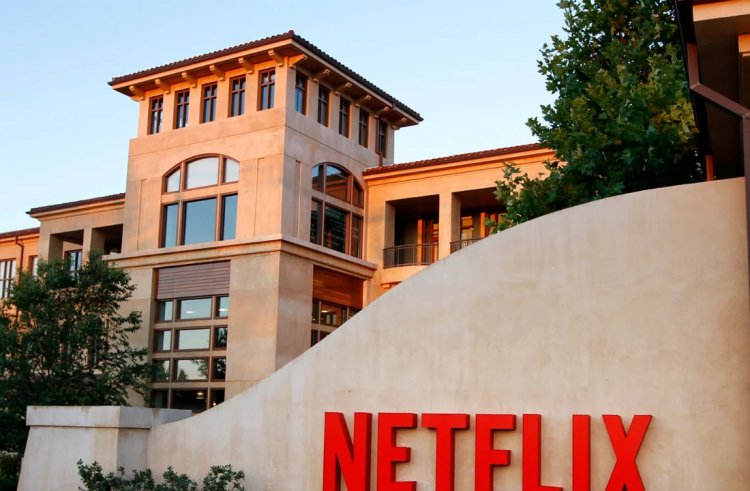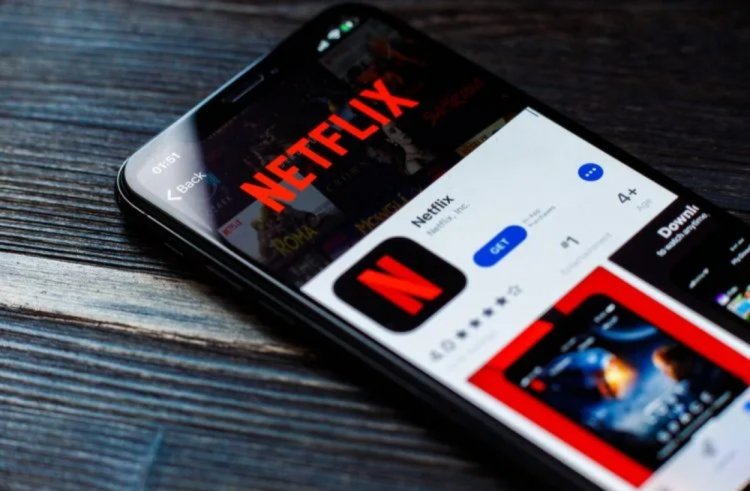Is Netflix going out of business
Is Netflix going out of business
Updated on November 14, 2022 11:36 AM by Dhinesh
The bloated world of cable television was meant to be cured by Netflix. Do you remember when your console had those small, grey boxes? After flipping through hundreds of stations and spending a split second perusing one low-budget show after another, you could feel as though there is nothing on television. There was certainly a lot to watch, but none of it was really enjoyable. Therefore, when the epidemic struck, things were great for Netflix, just as they were for all kinds of companies that only want you to sit on your ass. However, Netflix has grown into an expensive, bloated monster of a business that isn't all that different from its rivals.
Why spend $20 a month on a premium subscription when you're not even sure whether a streaming service—Apple+, Disney+, or Hulu—will have the new show you want to watch?

Due to the share price decline following the quarter-one announcement, Netflix reported a decline in subscriber growth for the second consecutive quarter in 2022. This only happened to the streaming juggernaut twice in recorded history, illustrating a disturbing pattern.
With about 221 million subscribers worldwide, Netflix is still the most popular streaming service. Its second-quarter subscriber loss of 970,000 was less than the two million it had anticipated, and the share price started to rise again. There are several historical instances that demonstrate Netflix must move rapidly to alter its business model, even though it is not yet in a crisis.
Kodak, Blockbuster, BlackBerry, and Yahoo! are just a few instances of powerful businesses that paid a steep price for their inability to adapt quickly to change. And now that Amazon Prime has surpassed the 200 million member barrier for the first time, Netflix is in danger of losing its position as the leader in worldwide streaming - even though the expression "Amazon Prime and relax" doesn't exactly have the same ring to it.
The truth is that Amazon Prime may quickly surpass Netflix in the near future. Another significant danger is Disney+, which has 152.1 million customers as of right now. Although Netflix was the first large-scale streaming service and initially had no competition, this has drastically altered in recent years. Despite being more recent additions to the streaming scene, Amazon Prime and Disney+ both have large financial resources and a very broad portfolio of both content and businesses.
Netflix is losing customers
The business reported that the first quarter of 2022 saw a record-breaking net loss of 200,000 customers, the largest decline in over a decade.
In a letter to shareholders, the corporation noted that "in the near term, we are not growing revenue as rapidly as we'd like." "By greatly boosting our growth in 2020, COVID obscured the situation, leading us to conclude that the COVID draw forward was primarily responsible for our growth's slowdown in 2021. We now think that there are four key, interconnected elements at play."
Add Block
Passwords are being shared
The fact that the firm estimates that over 100 million additional households have access to the streaming service because passwords are shared is one of the explanations mentioned. The company presently has 222 million paying members.
According to Netflix, "Account sharing as a percentage of our paid membership hasn't changed much over the years, but when combined with the first point, it makes it tougher to grow membership in many areas - an issue that was hidden by our COVID growth."
In March, the company announced that it would roll out new features in Chile, Peru, and Costa Rica. These features include the ability for users to add "subaccounts" to their accounts for individuals who are not members of their households and who will have separate passwords for a lower cost than the regular subscription price, as well as the ability to transfer profile information to a new account while keeping viewing history and recommendations.
One of the many streaming juggernauts is now Netflix
Although Netflix has always faced competition from Hulu, Youtube TV, and Amazon, the launch of services like Disney+ and HBO Max has increased that pressure, especially when those parent businesses have established legacies.
Regarding paid subscribers and revenue, Netflix is still the biggest streaming subscription service in the world, but it's become obvious that the competition is expanding quickly.
For instance, HBO and HBO Max had over 46.8 million U.S. subscribers at the end of 2021, an increase of 5.3 million from the year before.
Add Block
The business must adopt a global approach
The popularity of Korean series like Squid Game has demonstrated that globally produced shows may succeed in the U.S. market just as much.
To maintain growth and paid income, Netflix says it intends to strengthen its worldwide footprint.
"Our expansion will be largely international. US entertainment businesses have typically seen the "international" market as an export market for US material. However, we have long realised that great tales can be created and enjoyed anywhere. By greatly expanding the range of creators with whom we may collaborate, diversifying our content, and better catering to regional preferences, "added Netflix. "We have been developing skills like creative creation, personalisation, and language presentation/localization in order to assist this. With a high level of integration into the local entertainment ecosystem, Netflix is currently creating movies and TV shows in more than 50 countries, which has led to the emergence of blockbusters from every continent."
Add Block
The company raised pricing
Recently, user subscription fees have been adjusted in an effort to make up for income and subscriber losses.
Netflix declared in January that it would raise pricing in the United States and Canada by up to $2 to $19.99 for premium plans and up to $15.49 for regular plans.
Rich investors are withdrawing their money
Bill Ackman, the head of Pershing Square Capital Management and a billionaire hedge fund investor, invested $1.1 billion in Netflix just three months ago but has since quickly sold his shares.
When shares of the company were selling for $375 each, Ackman bought 3.1 million of them.
Due to the loss, Pershing Square Funds were down about 2% year to date as of Wednesday's close.
In order to recover losses that would take "one to two years," Ackman addressed Netflix's intention to "go after" non-paying users and to begin utilising advertising.
Foreseeing how these business model changes would affect the company's long-term subscriber growth, future revenues, operating margins, and capital intensity is challenging. Despite the fact that we think these adjustments are logical,
Ackman wrote in a letter to Perishing shareholders, "While we believe these business model adjustments are logical, it is exceedingly difficult to forecast their impact on the company's long-term subscriber growth, future revenues, operating margins, and capital intensity." Although Netflix's business is essentially straightforward to comprehend, recent developments have made us less confident in our ability to accurately estimate the company's future prospects.
When an investment starts to appear like it's going bad, "act swiftly," he said, citing "previous mistakes."
According to Reuters, Ackman lost almost $400 million on the transaction.
When the day ended on Wednesday, Netflix had lost more than 35% of its value, and as of Thursday morning, it had lost another 5.47%.
Add Block
Latest Netflix Options

The streaming giant is about to launch a lower-cost product that is funded by advertising revenue in an effort to start attracting new customers or keep the subscribers who actually struggle to afford Netflix as a discretionary buy. It resembles the various levels of Spotify accounts in many respects. On the ad-supported approach, Netflix and Microsoft have already partnered.
In its most recent shareholder letter, the business stated that "We'll probably start in a few markets where advertising spending is significant." "Like most of our new efforts, we plan to launch it, gather feedback, and then immediately iterate to improve the product. As a result, our advertising company's appearance in a few years will probably be very different from what it is today.
Netflix is undoubtedly making the correct statements about its agility. The business has also said it is just beginning to roll out a test for family members who live in various homes. It is very much an "if you can't beat them, join them" mentality and attempts to profit from something already in motion.
Password sharing between family members and friends may become acceptable with a small payment to offset any associated guilt, inconvenience, and, well, legal infractions. As a beginning point, a trial of this will be implemented throughout Latin America. The corporation claims, "We've now had more time to understand these challenges, as well as how to best handle them."
Game On
In order to position Game On Netflix as a go-to source for entertainment, the site is also concentrating on expanding its selection of online games. In addition, the business recently disclosed that it had acquired Animal Logic, the celebrated animation studio responsible for hit films like Happy Feet, Legend of the Guardians: The Owls of Ga'Hoole, The LEGO Movie series, and Peter Rabbit.
According to Amy Reinhard, Netflix's Vice President of Studio Operations, "Animal Logic is a leading animation studio with innovative technology that will strengthen our existing business and increase our long-term capacity in the animation space so that we can better entertain our members around the world."
Though it's unclear whether Netflix can keep up its lead in the streaming market, it might not be a bad thing to coexist alongside Amazon Prime and Disney+ at around the 200-million subscriber milestone. While Netflix seems nimble and adaptable, only time will tell whether it can adjust and adapt quickly enough to prevent the current slide from continuing. The real question is whether the decline is expected to continue.





